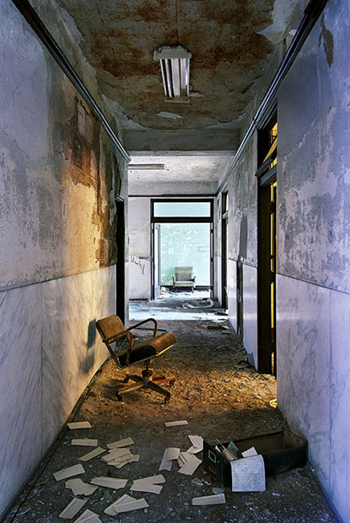At Grave Risk: The American Dream
A 46-year-old teacher in Charlotte, Vt., who has been unable to find a full-time job and is weighed down with debt, wrote to his U.S. senator, Bernie Sanders: “I am financially ruined. I find myself depressed and demoralized and my confidence is shattered. Worst of all, as I hear more and more talk about deficit reduction and further layoffs, I have the agonizing feeling that the worst may not be behind us.” Similar stories of hardship and desolation can be found throughout Vermont and the rest of the nation. The true extent of the economic devastation, and the enormous size of that portion of the population that is being left behind, has not yet been properly acknowledged. What is being allowed to happen to those being pushed out or left out of the American mainstream is the most important and potentially most dangerous issue facing the country. Senator Sanders is a Vermont independent who caucuses with the Democrats. He asked his constituents to write to him about their experiences coping with the recession and its aftermath. Hundreds responded, including several from outside Vermont. A 69-year-old woman from northeastern Vermont wrote plaintively: “We are the first generation to leave our kids worse off than we were. How did this happen? Why is there such a wide distance between the rich and the middle class and the poor? What happened to the middle class? We did not buy boats or fancy cars or diamonds. Why was it possible to change the economy from one that was based on what we made and grew and serviced to a paper economy that disappeared?” A woman with two teenagers told the senator about her husband, a building contractor for many years, who has been unable to find work in the downturn: “I see my husband, capable and experienced, now really struggling with depression and trying to reinvent his profession at age 51. I feel this recession is leaving us, once perhaps a middle-class couple, now suddenly thrust into the lower-middle-class world without loads of options except to try and find more and more smaller jobs to fill in some of the financial gaps we feel day to day. “All we want to do is work hard and pay our bills. We’re just not sure even that part of the American Dream is still possible anymore.” …

From the article: "All we want to do is work hard and pay our bills. We’re just not sure even that part of the American Dream is still possible anymore."
Too bad this person doesn't question this paradigm. This was really never part of the American Dream.
Live a lifetime of debt and servitude? For what?
Who in their right mind would call THAT the American Dream?
As long as people have this peasant attitude, the elite will be able to whatever they want, including taking away our homes, jobs, retirements and futures.